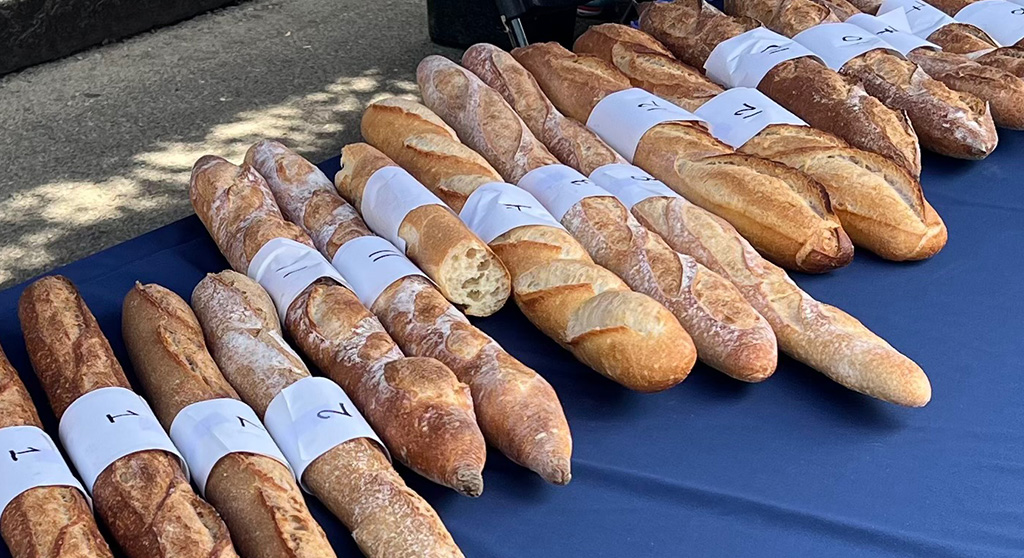First Le Grand Prix Elmendorf du Pain calls it: Brookline’s Clear Flour has the best baguette

Professionally baked baguettes await judging Sunday at Le Grand Prix Elmendorf du Pain in East Cambridge. (Photo: Rónán Fitzgerald)
The first Le Grand Prix Elmendorf du Pain French bake-off is now in the books, after 50 amateurs and 11 professional baking companies submitted their finest sourdoughs and baguettes for blind judging on Sunday at a four-hour event in East Cambridge.
Organized by Elmendorf Baking Goods and Supplies, the event drew inspiration from a famous Parisian competition in which only professionals take part. Here in Cambridge, professionals and amateurs had categories.
The judges worked their way through 60 sourdough (amateurs) and 21 baguette (professionals) loaves, totaling three and a half hours of tasting. By the announcement of the winner, nearly all of the local vendors had sold their last loaf or pastry, the band of musicians had packed up and everyone stood huddled around a blue tent adorned with French flags, waiting for a decision.
Suddenly, the judges – renowned cookbook author Jeffrey Hamelman; Hana Quon of Cafe Madeleine; Abe Faber and Christy Timon, founders of Clear Flour Bakery of Brookline and its owners until late 2017; and Mustafa Soykurt, the French consul general for Boston – put down their clipboards. At 3:45 p.m., with only 15 minutes in the event left to go, it was time.
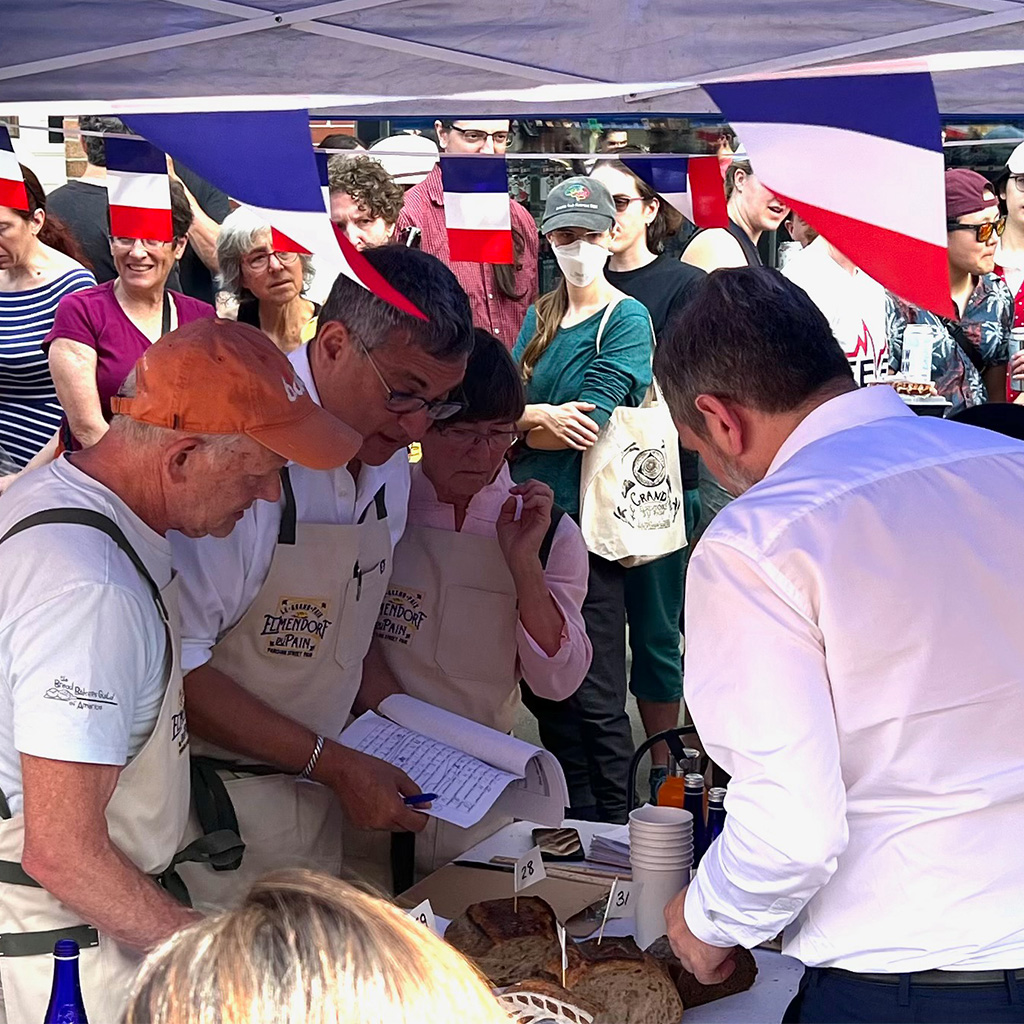
Judging is painstaking at the Sunday event. (Photo: Rónán Fitzgerald)
Coming in first for the professional division was Clear Flour Bakery, earning the esteemed position as the official bread supplier for the residence of the French Consulate of Boston.
When the bakery opened in 1983, “It was a lot of trial and error,” Clear Flour baker Michelle Lawrence said. “There weren’t any baking schools, there weren’t other bakeries doing it. And actually, you look at the bread that we used to make, it’s like ooh, that’s not pretty.”
Nicole Walsh, a co-owner of Clear Flour since 2017, credited the bakers who “apply that thoughtfulness to their shift at their job. They’re just working a shift, but they’re creating something they care about, and that’s what sets us apart.”
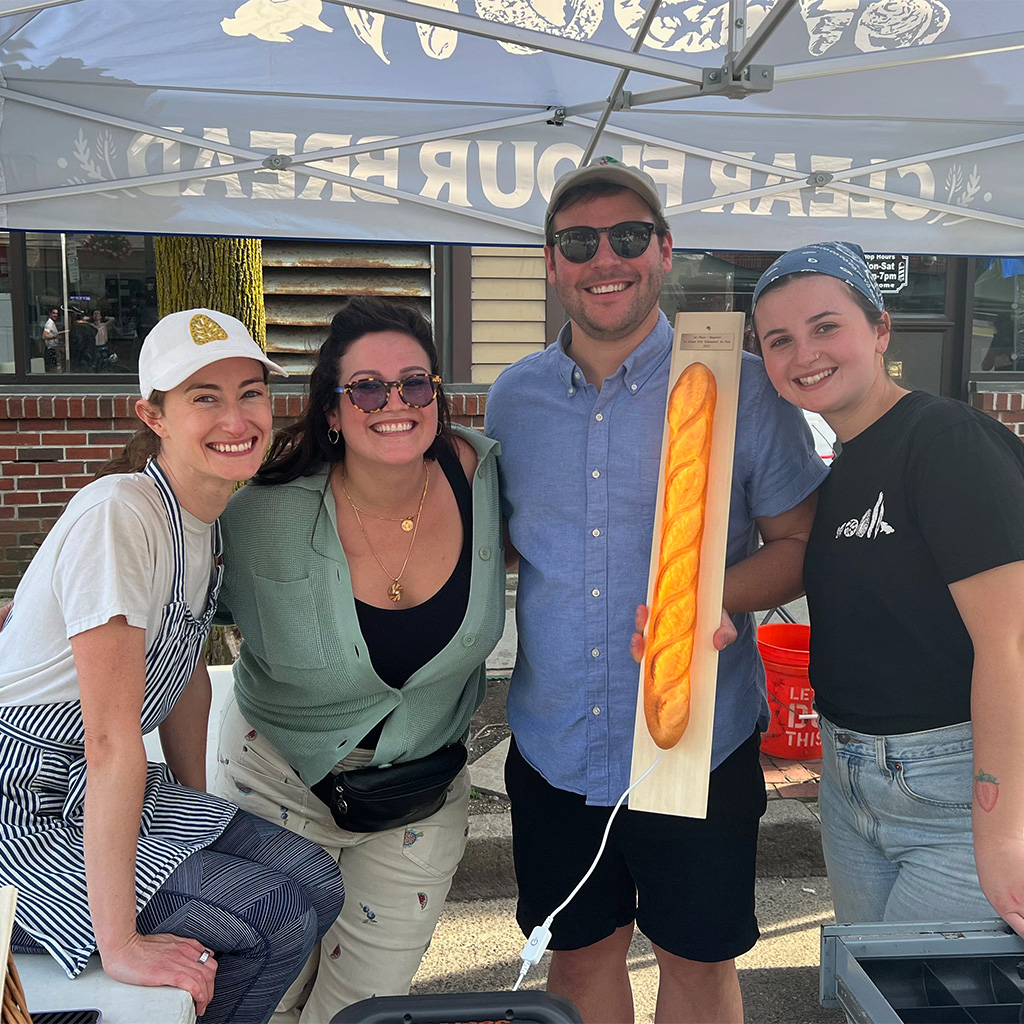
The crew from Clear Flour Bakery of Brookline, winner of the professional category. (Photo: Rónán Fitzgerald)
The second-place professional winner was My Little Bakery of Duxbury.
Winning the amateur competition was Kari-Elle Brown of Medford, who suggested a factor for the win: simple repetition of the craft. “I’ve been making this bread every weekend for the last three years,” Brown said. Ingredients for the weekly loaf – and her baking “side hustle” come from Elmendorf.
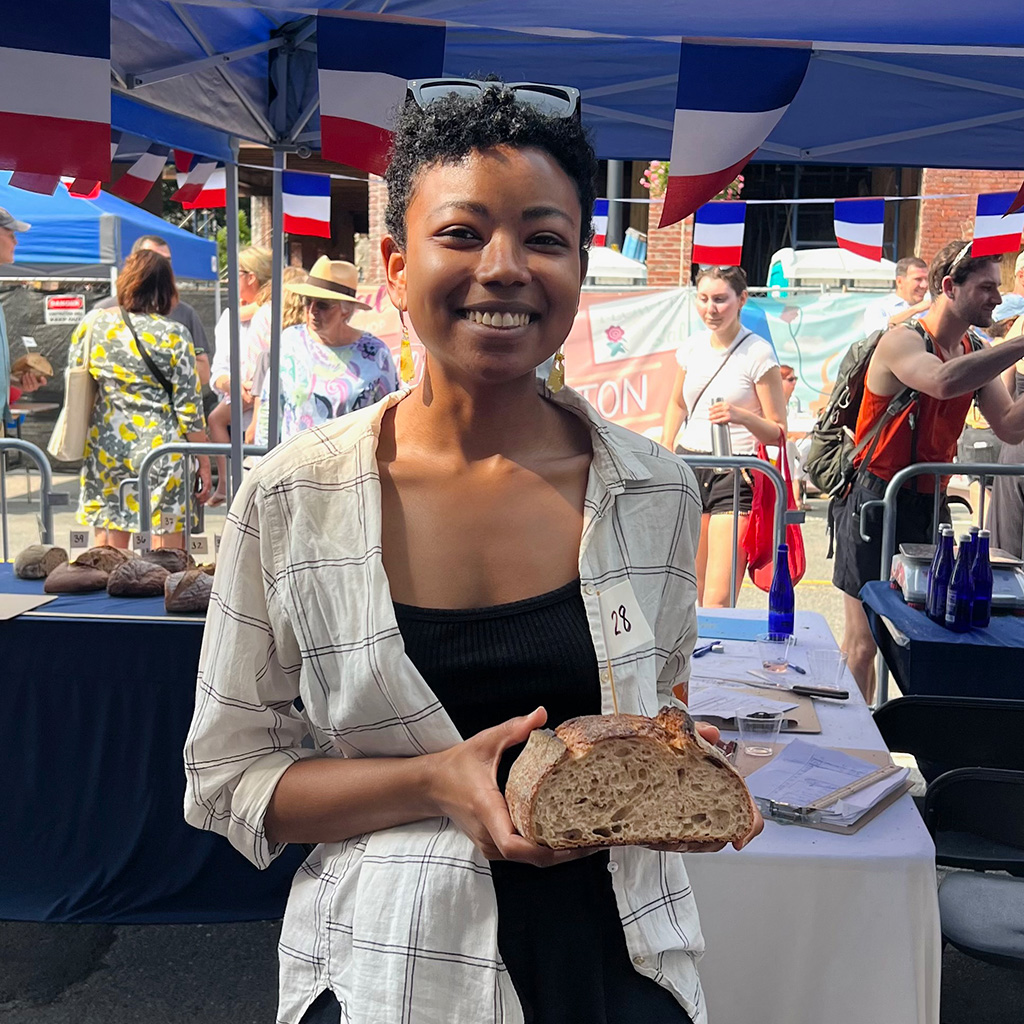
Kari-Elle Brown of Medford, winner of the amateur baking category Sunday. (Photo: Rónán Fitzgerald)
“It’s much more similar to an all-white dough than an all-whole wheat dough, but it’s still giving that lovely nutty flavor,” Brown said. Brown decided to go 30 percent on the whole-grain ratio, because that’s when she says “it starts to feel like a whole-wheat loaf without affecting the rise or the texture too much.”
The second-place winner was Nicholas Spidale, according to a listing sent by Elmendorf co-owner Alyssa Applebaum in the week after the event.
Luca Tramontozzi, a San Franciscan now living in the Boston area, said he took the contest’s parameters into account – specifically, that the judges were going to focus on flavor and whole grain. So, he recalled thinking, “Okay, let’s amp both and toast the whole grains that I’m using, [because] toasting gives it more flavor.”
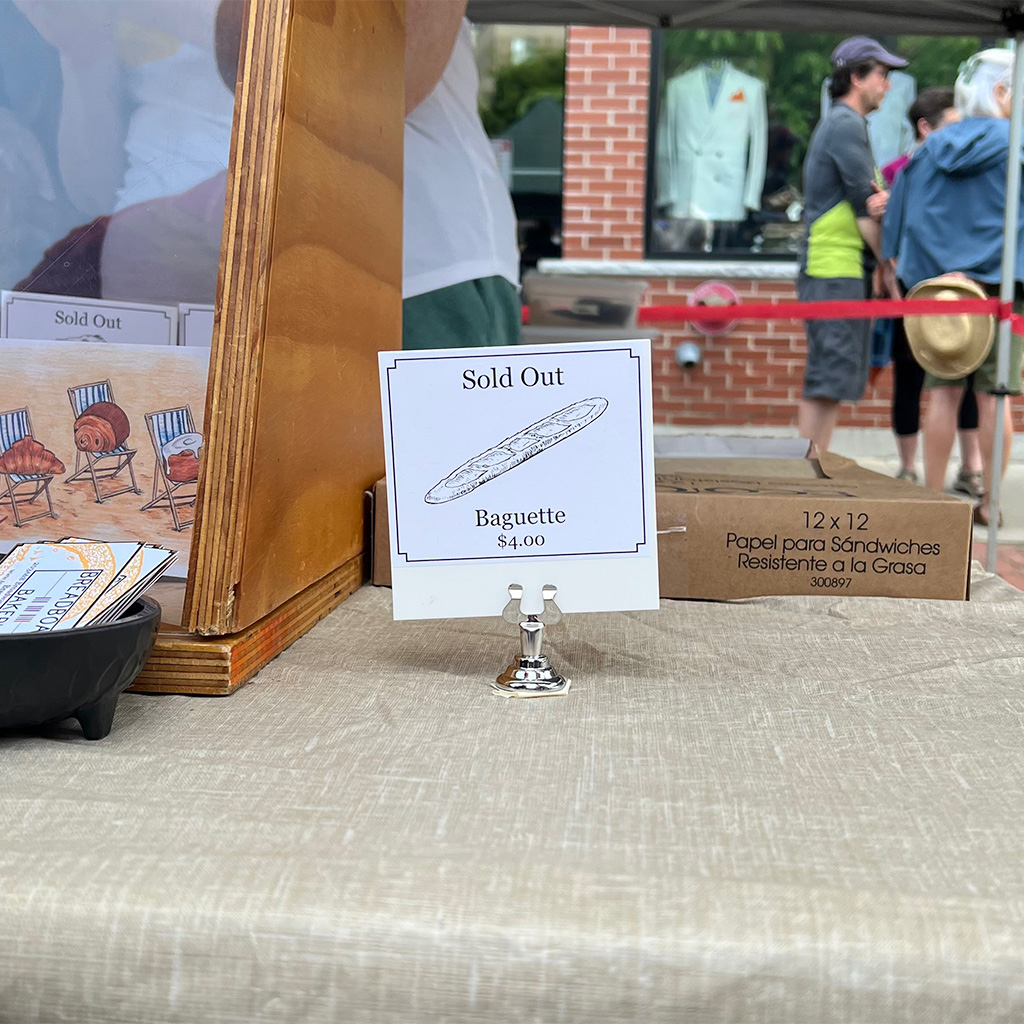
Large crowds at Le Grand Prix Elmendorf du Pain ran vendors out of baked goods before the end of Sunday’s event. (Photo: Rónán Fitzgerald)
It’s a delicate balance aided by an appreciation of the chemistry of baking. “Whole grain won’t develop as much gluten, but toasting it denatures proteins, and you don’t develop the gluten from toasted flour as well,” Tramontozzi said. “The gluten forms the strands that trap the air. Loaves that have really big [internal] holes is the tradeoff you make” – the more you toast the grains, the more flavor you get, but that means less gluten development, and so less fluffy bread rise.
Tramontozzi also cited Elmendorf as his main supplier of baking goods, which went into the loaf he entered in the contest. He tested 15 batches at two loaves each, totaling 30 loaves of preparation, with the final result being the 50-50 whole-grain-to-bread-flour ratio.
The event was not intended to award honorable mentions, but when it came to the amateur completion, judges found “there were three loaves that came in like thinner than a human hair’s width below in scoring, and we felt we had to honor these people,” an announcer said. The honorable mentions went to Sophie Clarke, Kaj Haley and Idelle Kehoe.

